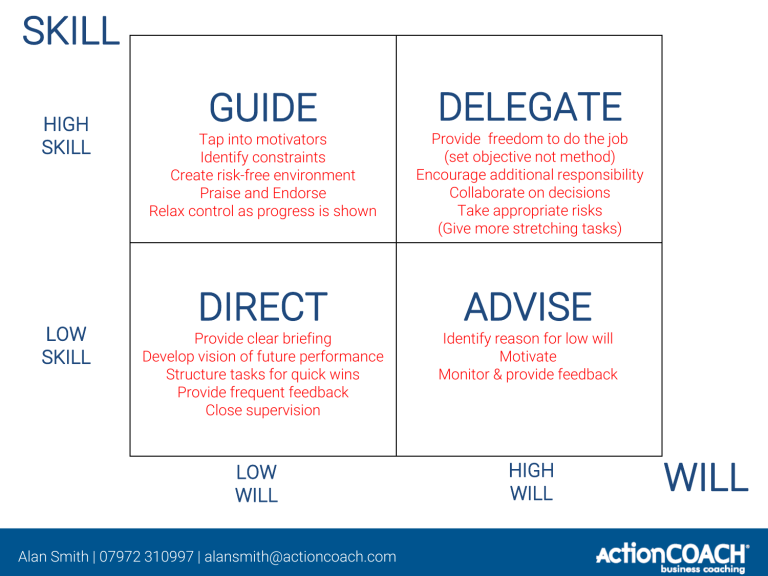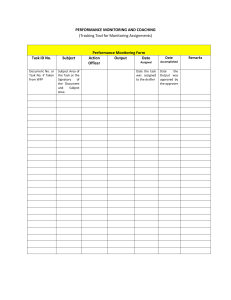
SKILL HIGH SKILL LOW SKILL GUIDE DELEGATE Tap into motivators Identify constraints Create risk-free environment Praise and Endorse Relax control as progress is shown Provide freedom to do the job (set objective not method) Encourage additional responsibility Collaborate on decisions Take appropriate risks (Give more stretching tasks) DIRECT ADVISE Provide clear briefing Develop vision of future performance Structure tasks for quick wins Provide frequent feedback Close supervision Identify reason for low will Motivate Monitor & provide feedback LOW WILL Alan Smith | 07972 310997 | alansmith@actioncoach.com HIGH WILL WILL WILL–SKILL COACHING MODEL The Will-Skill coaching model can help managers overcome one of the more challenging aspects of their role which is understanding what motivates their employees. It's easy to assume that because you are motivated by knowing you did a good job or by making an impact on your environment, that others feel this enthusiasm as well. In the real world, people have many different motivations. In turn, people also have different levels of skill sets for particular tasks. Their level of skill can often depend on their experience, the level of training they have received, or the type of task itself. Since most coaching techniques rely on the employees skills and their will to accomplish a goal, it is important to understand how these two aspects work together. This knowledge will help you to better craft your approach with your employees and teams to get the best results possible from each individual. So, how do we identify if an employee is exhibiting a high degree of will? This should be somewhat obvious from how they approach their work. If tasks that are not skill-related are still delivered in a less than stellar fashion or their attitude has taken a change recently, you can infer that the individual’s motivation has slipped. Assessing their skill for a particular role or situation is a much simpler task. You may be seeing results from your employee that do not meet your expectations and you have therefore decided a change needs to be made. Now that you have determined both the employee's will level and their skill level, it’s time to identify the coaching techniques that you should apply based on where the employee falls in the model. Simply plot your employee against each axis and whichever box they fall into that should help you determine the management style you should adopt in order to get the best possible outcomes from them. Alan Smith | 07972 310997 | alansmith@actioncoach.com










